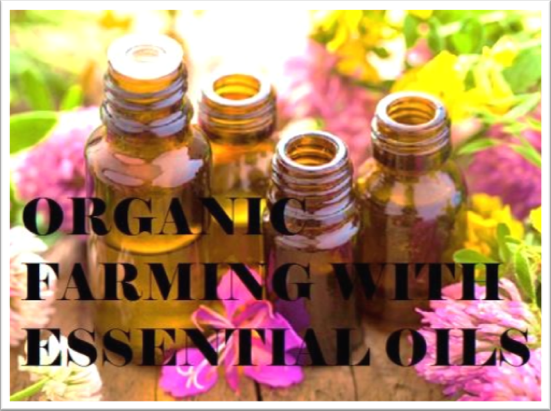
Have you ever adored the sweet, fresh fragrance of a rose? If yes, then you surely have been through the aromatic essence of essential oils! These scented aromatic compounds are found in the barks, stems, seeds, flowers and roots of the plants. Apart from finding uses in healthcare, beauty and culinary preparations, these are also significant to the agricultural industry. Essential Oils, recently have started replacing chemical fertilizers and pesticides in farms and gardens.
Fragrant essential oil can serve various purposes in gardening. They can replace chemical pesticides in the garden. Let us ponder, why do we need to use an essential oil instead of a store-bought pesticide? The fact is, we all believe in a philosophy that goes in harmony with nature, and not in callous logics that battle the ecological principles. For instance, which is better: killing a swarm of red ants with chemicals or warding off them with safer alternatives?
Let Us See How Essential Oils Can Be Beneficial for a Farmer or Gardener.
Essential aromatic oils can protect the crops and plants from mildew, botrytis, and other plant diseases.They can also protect the farmer or gardener from sunburn, itching and insect bites.
Given below are some of the best, tried and tested essential oil choices for the garden:
Garlic Oil
Clove Oil
Tea Tree Oil
Oregano Oil
Lemongrass Oil
Cedarwood Oil
Peppermint Oil
Eugenol Oil
Thyme Oil
Citronella Oil
Cinnamon Oil
Consistent Use of Essential Oils in Gardens and Farms Produces Best Results
A very common pest in crop farms is the looper caterpillar. These have a gluttonous appetite for juicy leaves of vegetables like cucumbers, tomatoes, carrots, radishes and melons. It has been scientifically proven that equal parts of essential oils of Rosemary, thyme, clove and peppermint are an effective deterrent for these feasting larvae.
Symbiotic Relation Between Essential Oils and Crops
Many fruit bearing plants have a symbiotic relationship with other plants. Companion planting is an alternative to using chemical fertilizers in farms and gardens. This is based on the idea that certain plants get immense nutritional benefits from other plants when grown near each other's vicinity. Most plants from which essential oils are extracted can be planted near other fruit bearing plants. For example, a lavender plant can be grown near apple trees. Alternatively, lavender essential oil can be sprayed on the leaves and stems of the apple tree to attract natural pollinators. This because the scent of the lavender oil is irresistible for tiny bees!
Essential oil companions for:
Fruits
Grapes: Lavender, Hyssop
Apple: Lavender
Flowers
Roses: Hyssop
Vegetables
Tomatoes: Basil
Cabbage: Sage, Thyme
Beetroot: Marjoram
Cucumber: Yarrow
Carrot: Sage
Potatoes: sage
In your garden, if there are plants or flowering trees that are oil-sensitive, then it is ideal that you avoid using essential oils on them. Few examples of such plants are Fir, Junipers, Black Walnut, Maples, and Spruce.
Where to Source Good Quality Essential Oil for your Garden?
While buying essential oils, always keep in mind that you buy the ones that are organically certified and safe to use. HBNO's pure essential oils are cold pressed from plants that have been grown organically. Health and Beauty Natural Oils (HBNO), based in California is committed to offering its customers with the highest quality essential oils at competitive prices. We provide essential oils in both bulk and wholesale qualities to all parts of the world.

